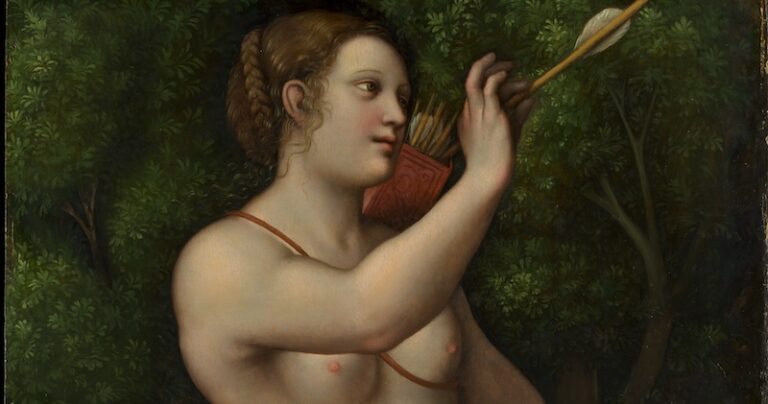For a long time, I didn’t realize that my irritation at society’s oppressive prescription for motherhood was anything more than my state of being. This frustration buzzed on the periphery of my awareness so persistently, became a thing so familiar, that I didn’t acknowledge or identify it. When I finally did, it was through literature.
Ann Patchett is one of the most effective novelists today on maternal ambivalence, precisely because she writes compelling, full characters who unapologetically commit to decisions about their own maternity. This distinction from most other novels helped me to see that I was not alone. * In 2013, Ann Patchett gave a reading at Politics & Prose bookstore in my hometown of Washington, DC.

In retrospect, I can see I was at an extremely vulnerable place in my life. I was still finding my feet, following a split from my long-time, mortgage-sharing, dog co-parenting boyfriend. I was in my thirties, single, and had achieved none of the life milestones many of my contemporaries already had.
And then Patchett signed my copy of , adding, “Monica, live a life of wonder.” I went away thinking about how to do that. I had allowed my relationship to limit my choices; I put off grad school at his request, and buried my ambition to be a writer so that I could contribute financially to our lives together.
But in the aftermath of our split, I was only lonely. When I confided this to my stepmother, who was home with my two much younger half-sisters, she laughed and said, “I’d love to be lonely sometimes.” It sparked an idea for me: what if, instead of alone, I was free? It took some time, but I eventually summoned the courage to enroll in an MA in Creative Writing in London.
_______________________________________________________________ When I was asked to choose a book for the module on I chose because of its impressive plot and structure. It is a literary adventure, with the protagonist, Marina, searching the Amazon for a missing person who may have discovered a miracle infertility treatment. When I began my doctoral research on literary characters who expose the “maternal instinct” as a myth, I returned to and discovered a new reading of it: Marina does not want children, goes on a life-altering trip, and bonds with an orphaned child.
Her decisions about that child’s future are wrenching and complicated, and interrogate many of the tropes we often read about motherhood. I soon realized that there are more examples of non-maternal characters in Patchett’s novels. Like, almost all of them.
And although it took me many years to connect the dots, Patchett’s heroines set an example for me that society broadly does not offer. Patchett has been a finalist for the Pulitzer Prize for Fiction, won the PEN/Faulkner Award, and was awarded the National Humanities Medal by President Biden. She is a celebrated author, and yet this prominent element of her work is not widely discussed: most of her novels feature a mother who is missing or a woman who is ambivalent about motherhood.
Critically, the reason for the mother’s behavior is rarely explained, and never sufficiently for the children left behind. Generally, the mother is not a bad person. Sometimes she’s even a very good person, objectively speaking.
* Patchett’s first novel, was published in 1992. Each of three sections of the novel are told from the point of view of a different protagonist, but the first narrator, Rose, is the central character. Rose is young, Catholic, married, and pregnant.
When we meet her, she is fleeing her old life for a home for unwed mothers, where she will continue her pregnancy and give the baby up for adoption. She decides that her penance for abandoning her husband and child will be to sacrifice her relationship with her mother—the worst thing she can imagine. She tells no one where she is going, and, of course, tells no one at the home that she is actually married.
This is a dramatic opening for a novel, but things settle down as Rose makes friends in the home. All the other women wish they could keep their babies, but they are unmarried and ashamed of being pregnant. Most plan to labor in secret for as long as possible so that they have more time with their babies before the adoptive parents carry them away.
Rose does not explain herself to anyone—even the reader—but when her friend goes into labor, Rose suddenly marries the only man on the grounds, and they keep her baby. While some may read her decision to keep her child as her “maternal instinct” kicking in, she can’t bear to stay; her initial instinct to leave her first husband and give up her baby were the “right” ones for her. We don’t get an explanation from Rose on her abandonment of her daughter and second husband, but that is because she can’t see her ambivalence as a lack; it was never there.
This is the trait all Patchett’s heroines share: their actions are inexplicable until they suddenly shape into the most predictable behavior we can imagine. Rose’s decisions are driven by a persistent see-saw between guilt and self-preservation. She does not want children or marriage, but she believes she must make these traditional choices.
Her need to conform consistently and predictably undermines her own desires, but she can never sustain her adherence to others’ expectations of her. In the protagonist, Sabine, is clearly a caregiving figure, but spends her life fully committed to a gay man, giving up on the hope of having children. includes several mothers, but their roles are shifted and traded in such a way that force the reader to question the bounds of maternity and fertility.
Nearly thirty years after , Patchett’s eighth novel (2019) features siblings Danny and Maeve, who have been abandoned by their mother, Elna. As adults, they learn Elna’s reasons for leaving. Narrated only by Danny, this novel is less about understanding his mother’s inexplicable actions, and more about whether her children can forgive her.
The disclosure of Elna’s motivation is something of an evolution in Patchett’s work. Like in her first novel, we see how the children were affected by the mother’s desertion, but in this case, even without the benefit of direct narration we do get an explanation from Elna. Danny is unsatisfied, however, reporting “Of course it wasn’t just the house or the husband.
There were the two children sleeping on the second floor who went unmentioned.” This narrative shift leads neatly on to Patchett’s latest novel, featuring the maternal narrator Lara, . The clever structure of gives the reader access to Lara’s private memories, alongside the slightly censored version of her life as she shares it with her adult daughters.
Her life story begins by merely falling into a short-lived acting career and even shorter-lived relationship, but what follows is a series of considered decisions to achieve what she actually wants for herself—not least of which is an abortion. “A nurse stood beside me and held my hand and I’m here to tell you, I felt nothing but grateful.” Her explanation is succinct and powerful, conveying even more conviction than Rose or Elna ever does.
Rose is conflicted and unhappy because she accepts obligatory roles. Elna is more peaceful because she has done what she believes to be right, even while feeling guilty for leaving her children. Lara may seem, on the surface, to have conceded a more traditional role—she works on an orchard, is happily married and has three wonderful daughters.
If she were on Instagram, she might be a tradwife. But her life has been full, and she has demonstrated a commitment to pursuing things that make her happy, no matter how others perceive her choices. is not without maternal ambivalence, however.
When Lara’s eldest daughter Emily announces that she will not have children, Lara responds in an all-too-familiar way: “’You never know.’ I try to make my voice neutral. ‘You might change your minds later on.
’” She doesn’t mean it in the condescending way this feedback is usually delivered; she means that she has changed her mind about what she wants and doesn’t want Emily to be afraid to do the same. * Women who choose a different path to motherhood have more prevalent role models today than they did even ten years ago, yet since the 1990s, Patchett has portrayed full lives beyond motherhood—providing a counter-narrative to the one prescribed by society. In fact, Patchett has discussed her own decision to not have children and the backlash she faced.
In 2011, she told “I never wanted children, never, not for one minute, and it has been the greatest gift of my life that even as a young person I knew. It freed me up tremendously. Children are wonderful but they’re not for everybody, and yet it never stopped.
To constantly have people tell me that I didn’t know my own mind and I didn’t know my body was kind of outrageous.” Just because someone be a mother does not mean they want to be a mother. Patchett’s ambivalent mothers are complete, in spite of their failures.
In fact, their lives and their children’s lives are perhaps more full thanks to the mother’s willingness to interrogate her own desires. The beauty of Patchett’s work is that her characters progressively bend to societal expectations, but her novels are not explicitly about maternal ambivalence. They are about people in dogged pursuit of their best lives—like us all.
.



















